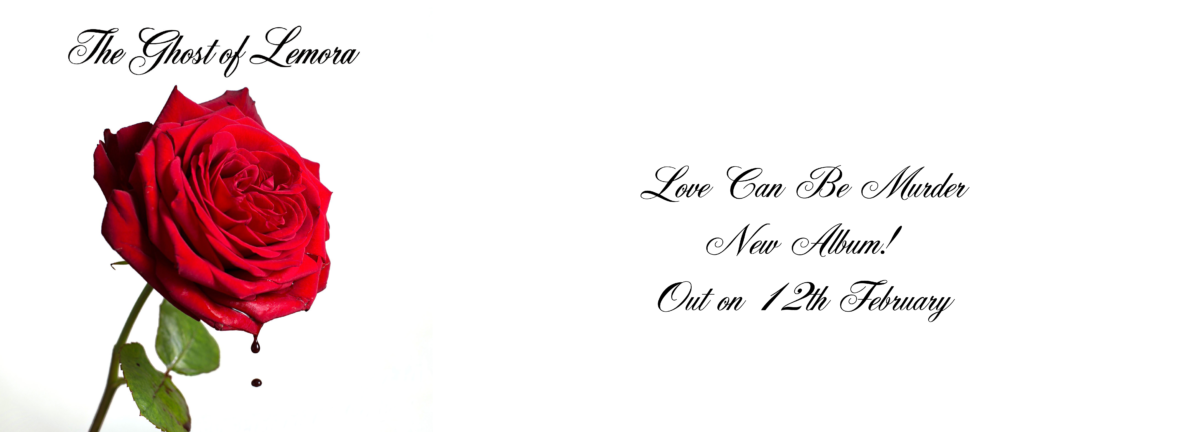“Love can be murder” album: review in Let’s get ready to rock
Originally formed in London in 2001, The Ghost of Lemora have released two studio albums and a couple of EPs. This new album has been in the works for a number of years being delayed by the pandemic as many albums have been. It was produced by Andy Ramsey (Stereolab) – whose studio the album was recorded in – and Paul Tipler (Placebo, Julian Cope).
The Ghost Of Lemora are Jeff Simon (drums), Colin Ness (bass), Peter Jennings (keyboards), Paul Swift (guitar, backing vocals) and Richard Winstone (lead vocals) – the latter two are founding members of the band, with Swift being the band’s main songwriter.
The press release says this album is the band’s most ambitious release to date. Not having heard their earlier work I can’t comment on that, however, they certainly have put a lot into the music. There is a jazz beat meets metal riffs on ‘The Letter I Wanted To Write’. Then on ‘The Beginning of the End of the Western Dream’ there is some wonderful Keith Emerson approved keyboards from Peter Jennings. Prog fans will particularly enjoy this one, as will those who like a bit of gothic pomp a la Sisters Of Mercy.
‘Headphones’ is perhaps the most instant song on the album with a chugging riff and driving rhythm. Spending a lot of time with my headphones on to get through a day I can relate to this song’s lyrics – “Headphones, block out, My world I want back”.
‘I’ll Be With You Tomorrow’ is a tender song to end the album on. Again it features lovely piano/keys, one of the main strengths on the album.
Richard Winstone’s vocals take a little while to gel, he doesn’t half remind me of Johnny Cola from the A-Grades. Indeed, like many a good album you keep coming back to, lend it your time and ears as you will be well rewarded if you like prog, pomp or gothic rock that is a little different. ***1/2
Review by Jason Ritchie
“Love can be murder” album: review in Progsphere
Listening to the new album by UK band The Ghost of Lemora entitled “Love Can Be Murder” ultimately brings a thought to one’s mind that the five-piece that has been around since 2001 is one of the most promising bands in the alternative rock today. The London-based band has a knack for soaring, glowing mixture of genres thanks to passionate musicianship and directness, but also a tender, intimate delivery in the vocals and guitar as well as an ability to venture into various emotions, even if sonically not much changes.
“The Player” kicks this thing off being sunny but ghostly with floating keyboards that just wander, like they and the ethereal vocals are lost in the world creating a wide-eyed outlook. Towards the end the guitars become more direct, making for a liberating sensation. “The Beginning of the End of the Western Dream” is just an extra level of bombast this time around in the thick, punchy chords, but the overall vibe remains serene. “Pictures” is like having your legs in the shallow end of the ocean, the way the reverb-drenched guitars and almost spoken vocals wash over you like you’re in a life-affirming scene in a film and the lavish keyboard bends truly make it cinematic.
Album closer “I’ll Be With You Tomorrow” on the other hand is more comatose with brooding, sparse notes at the start. However, the song gradually ascends with more direct, pouring playing thrown in and its flourishing sneaks up on you due to how close the whole track is. One minute you’re being put to sleep with aesthetic for an operation and the next you’ve woken up repaired. Before that the title track however injects some liveliness with more swift picking and stompy moments combined with the glimmering tone that defines much of the record.
“Love Can Be Murder” sees The Ghost of Lemora carrying the beauty and skill that already made them so special across a whole album, naturally making for one of the prettiest records of the year.
